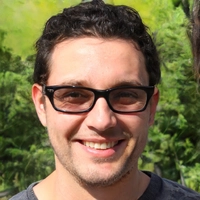DR Congo Suspends Kabila’s PPRD Party Over Alleged Rebel Ties Amid Rising Political Turmoil
21 Apr, 2025DR Congo Government Suspends Kabila’s Party Amid Accusations
The political atmosphere in the Democratic Republic of Congo just got a lot more charged. On April 20, 2025, authorities suspended the People's Party for Reconstruction and Democracy (PPRD), the group headed by former President Joseph Kabila. Officials say the move comes after suspicions that Kabila is plotting to stir up unrest with the help of armed groups—especially the notorious M23 rebels who are known for wreaking havoc in the eastern regions.
The government’s accusations didn’t appear out of nowhere. Not long after Kabila’s unexpected return from more than a year spent overseas, he set up shop in Goma. That’s no regular Congolese city—it’s right at the center of rebel activity and a frequent flashpoint for violence. President Félix Tshisekedi wasted no time in warning that Kabila might be looking to influence events on the ground, claiming the ex-president is supporting rebels to destabilize the country. It’s a dramatic accusation, and it signals just how tense the old alliance has become since the 2019 transition of power.
Kabila’s camp, meanwhile, is pushing hard against the claims. They point to Article 30 of the Congolese Constitution, which promises every citizen the right to settle where they wish. Their message: Kabila’s move is legal, and any suggestion of insurrection is pure politics. They’re not about to quietly accept what they see as government overreach. The former president’s decision to stay in Goma, a rebel stronghold, looks loaded with symbolism—especially with local and international analysts eyeing every step for hints of deeper connections to armed groups. Still, for now, no smoking gun evidence about Kabila’s direct support for M23 has surfaced.
Tshisekedi Tightens His Grip as Old Alliances Fracture
President Tshisekedi hasn’t stopped at just suspending Kabila’s party. Last month, several high-profile PPRD figures found themselves blocked from leaving DR Congo. It’s an unmistakable sign that the government is clamping down on a party that was once its ally. Remember, when Tshisekedi was declared election winner in 2019, he leaned on support from the same PPRD network to stabilize his own base. Now, with elections in the rearview mirror, the gloves are off and both leaders are accusing each other of destabilization and power grabs.
This suspension of the PPRD brings the country’s political rivalry into sharper focus. Both Tshisekedi and Kabila have a lot to lose—control of the government, influence over the army, and leverage with international partners. The east of the country, where resource wars have raged for decades, is already on edge. Suspicious movements, political grandstanding, and public accusations risk tipping things toward more violence and division at just the moment when real unity is needed.
What’s clear is that the stakes for DR Congo are getting higher. Political battles in Kinshasa are bleeding into an already fragile landscape in the east, where locals just want an end to violence. The authorities’ move to ban the PPRD could set off a tough reaction from Kabila supporters and reshape how parties and rebels jockey for power in the coming months. For ordinary Congolese, the latest developments only up the pressure as the country walks a tightrope between stability and turmoil.

 by
by